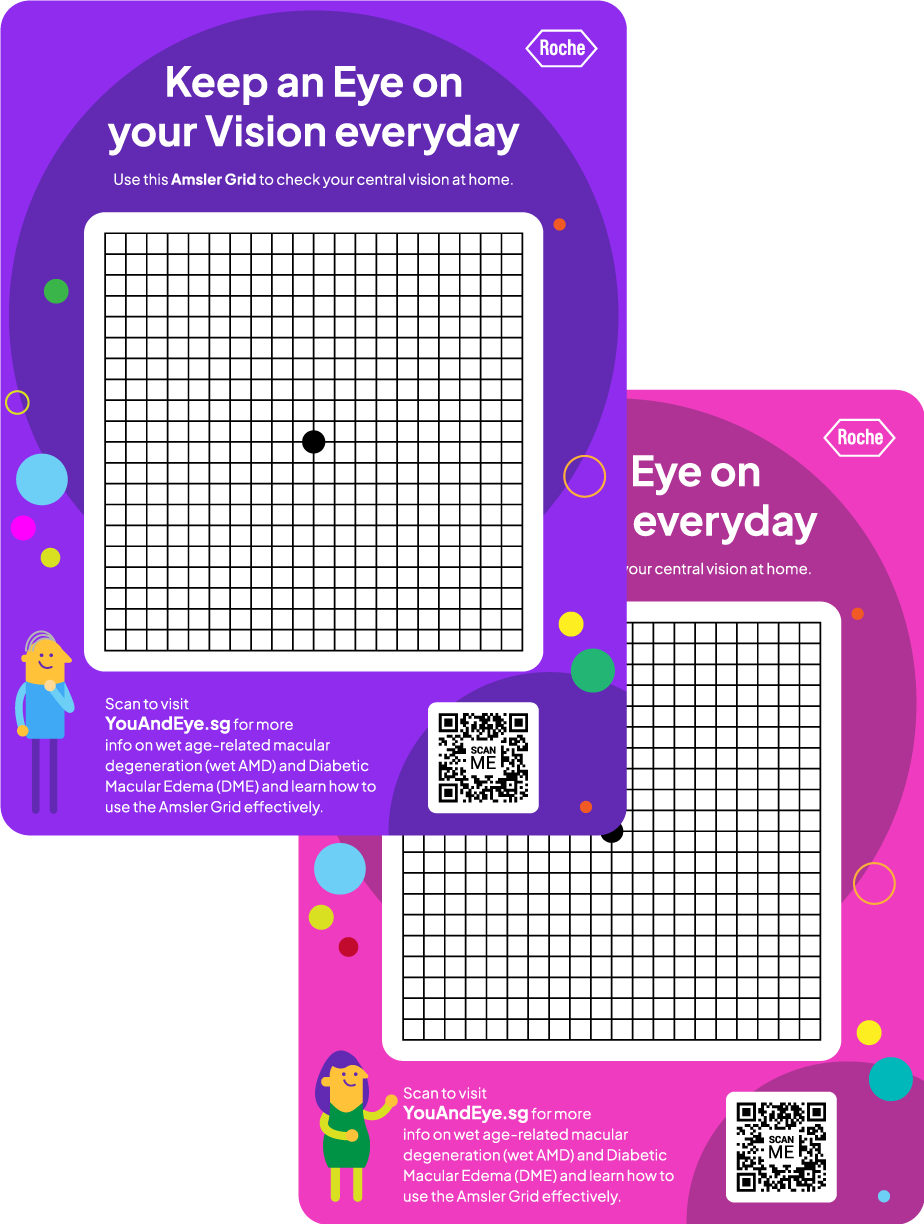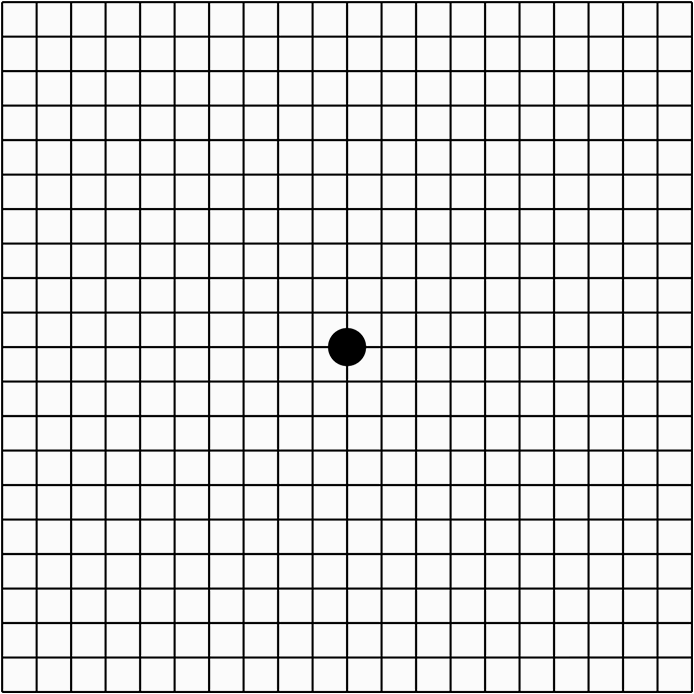
Amsler Grid – Your Useful Tool to Check your Vision Everyday
The Amsler Grid is used to help record any changes to vision. It is important to check your vision everyday in both the
affected and the healthy eye to pinpoint any new changes to your vision.
Here is how you use the Amsler Grid: ⁽ ¹ ⁾ ⁽ ² ⁾ ⁽ ³ ⁾
- If you normally wear glasses, keep them on while looking at the grid.
- Cover one eye as you check the other eye’s vision.
- Hold the grid at a normal reading distance – about 35cm / 14 inches away.
- Focus on the dot in the center of the grid with your uncovered eye and ask these questions:
- Do any lines look wavy, broken or distorted?
- Does any part of the grid have blurry areas?
- Are there any missing areas or dark areas in the grid?
- Be sure to write down any changes.
- Repeat steps 1-4 to check the other eye.

Normal Vision
Amsler Grid looks like graph paper, with a small dot at its center

Abnormal Vision
Amsler Grid may appear to have wavy lines or blank spots
Who should I contact if I notice my vision is getting worse?
If you or your family members experience any of these symptoms or sudden changes in vision, do consult an eye care professional as soon as possible.
Early diagnosis and treatment can help slow the progression of retinal diseases and potentially preserve your vision. ⁽ ³ ⁾
Tell me more about
Retinal Disease
As you age, wet AMD can impact your central vision. Explore these valuable resources to learn about available treatment options and initiate a meaningful conversation with your doctor.
Retinal Disease
Diabetic Macular Edema (DME)
DME is a severe eye condition that can affect individuals with diabetes. Discover effective strategies for managing this condition and preserving your vision.
References:
- [1] American Macular Degeneration Foundation. Amsler Chart to Test Your Sight. Available at: https://www.macular.org/amsler-chart. Accessed on 29 May 2023.
- [2] BrightFocus Foundation. How to Use the Amsler Grid. Available at: https://www.brightfocus.org/macular/article/how-use-amsler-grid. Accessed on 29 May 2023.
- [3] Pardue MT and Allen RS. Neuroprotective strategies for retinal disease. Prog Retin Eye Res 2018;65:50-76.